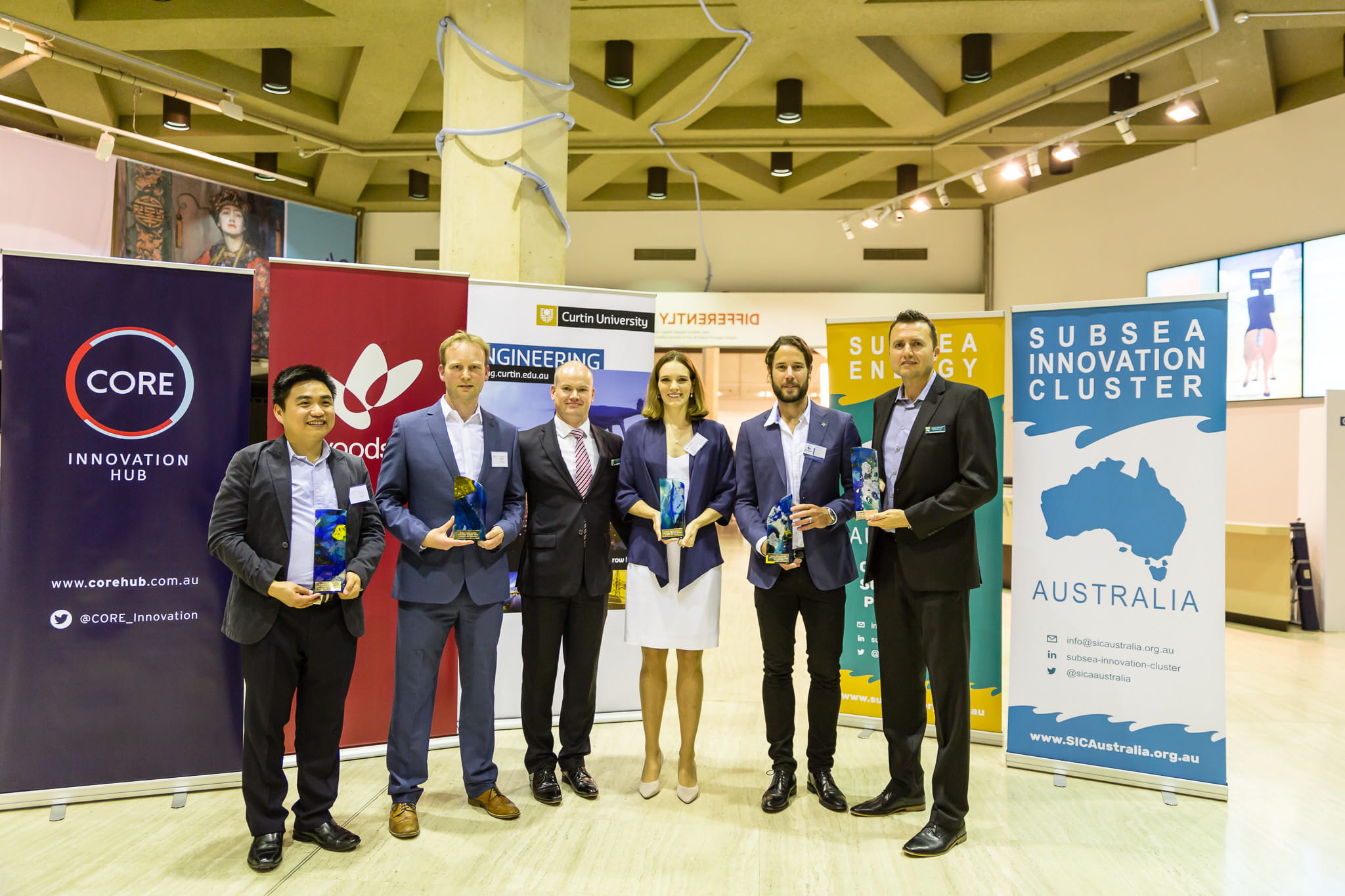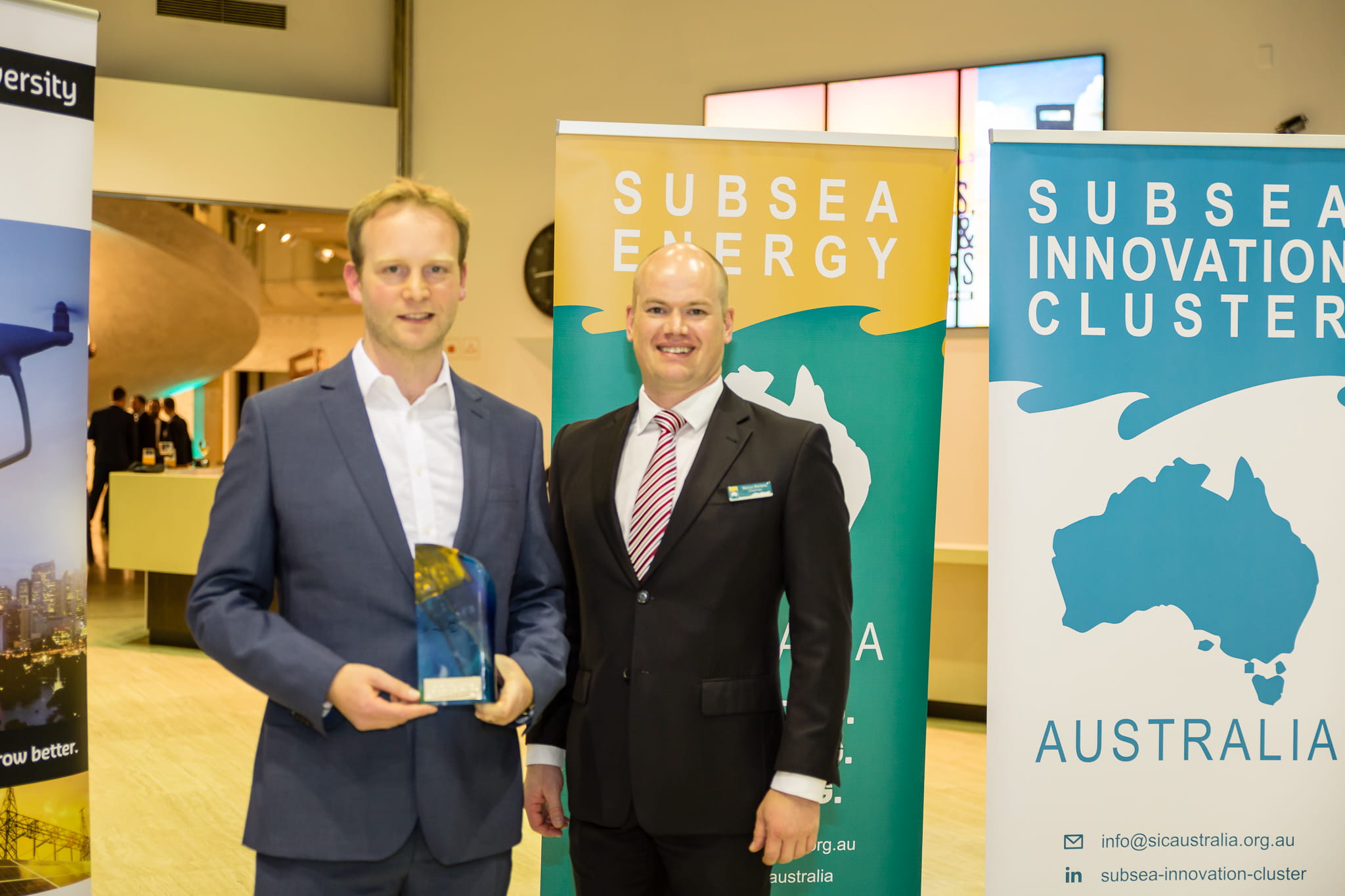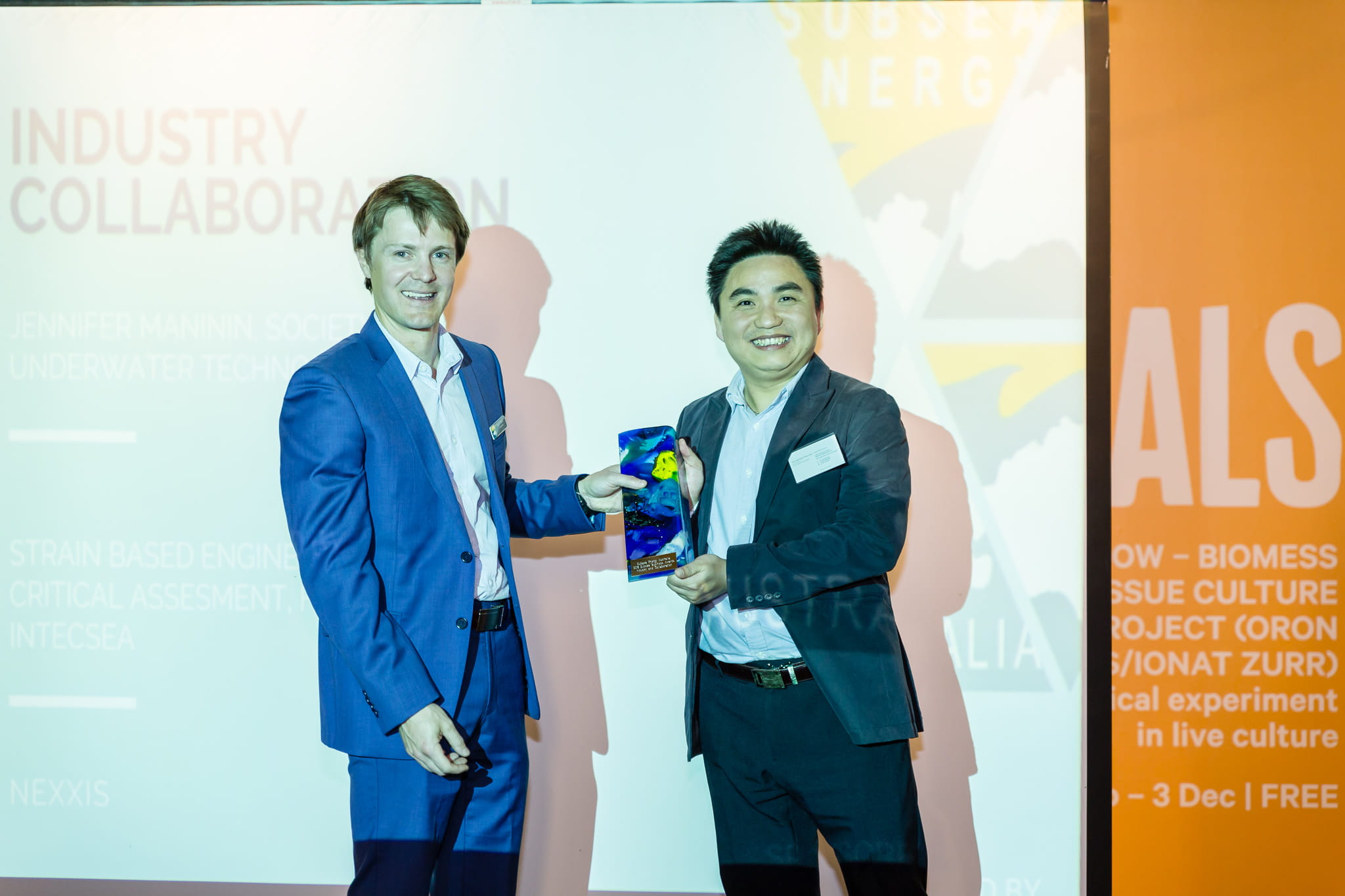1 September 2018
INTECESEA and its team members were honored at the 10th Annual Australian Subsea Business Awards, presented on Friday, August 24, 2018, by Subsea Energy Australia, which aims “to be the champion for the growth and development of the entire subsea industry in Australia”.
Lee Thomas received the 2018 Award for Innovation & Technology for the Pseudo Dry Gas System, and Joe Tran won the 2018 Award for Collaboration for the SBECA, a project hosted by INTECSEA in cooperation with ConocoPhillips, INPEX, Shell, Heerema, McDermott, TechnipFMC, Sintef, DNVGL, and Dr. Henryk Piarkski. Dave Evans was shortlisted for the 2018 Award for Emerging Talent.
About the Award-Winning Projects
Subsea 'Pseudo' Dry Gas Systems (PDGS)
The aim of PDGS are to dramatically increase the range of subsea gas tie-backs by more efficiently using available pressure from the reservoir rather than adding additional pressure via compression. The increasing worldwide demand for hydrocarbon gas is being driven by global environmental agreements, resulting in increasing pressure to lower carbon dioxide emissions. Hydrocarbon gas, being the cleanest fossil fuel, plays a strategic role in the transition from conventional fossil fuels towards renewable energy and a lower carbon footprint.
This technology project aims to dramatically improve the efficiency of gas transportation using the natural gas reservoir pressure, eliminating gravitational and minimising frictional pressure loss, through integrated piggable liquid separators. The separator units will be designed as ‘in-line’ structures, welded directly into the pipeline during installation. The benefits of the technology will be to significantly increase the range (doubling) of subsea tie-backs to existing facilities, thereby increasing the recoverable reserves within a gas reservoir.
Of the award, Lee said, “After a number of years of quietly developing this technology it’s great that the industry is starting to pay attention to this potential game-changing concept for offshore gas fields.” He wanted to thank the local team in Perth, Stephen Stokes (who accepted the award on Lee’s behalf), Andrew Rafty, Peter Brownlie, and Marius Martens for their hard work and flexibility. He also wanted to recognize the WorleyParsons Innovation Hub, lead by Suren Thurairajah, for creating the space for the technology to develop.
Strain-Based Engineering Critical Assessment (SBECA) Round Robin
The objective of this Joint Industry Project (JIP) was to understand the diversity of approach and assumptions practised for SBECA in the oil and gas industry and to subsequently capture the magnitude of potential issues posed by various approaches and assumptions. Because diversity in approaches and open interpretation of key parameters affects the efficiency of the SBECA studies in terms of integrity of design and cost saving from welding activities, there was inherent value in gaining a consensus from regular industry practitioners to establish a unified methodology. This necessitated collaboration between operators, pipe manufacturers, installation contractors, and design consultants, where each participant contributed expertise and/or information towards the setup of sample cases followed by a round-robin exercise.
Joe said that, “This was an unusual JIP, in which all participants contributed either data or actual calculations.”
The key deliverable of the project was to give an indication on the severity of the consequences arising from the diversity of approaches and to identify gaps within the practices. Additionally, some general agreements between participants (including of operators, consultants and code writer) on some key parameters were established. This is the first step to developing a unified approach for performing SBECA. A true measure of success, the results of this SBECA are currently being referred to in the COPA Barossa Project.
Joe extended a special thanks to all participants for their contributions, and, in particular, to Andrew Low and the legal team in Houston, who were instrumental in dissolving the contractual challenges encountered with many participants.
For more information
For more information about Subsea 'Pseudo' Dry Gas Systems (PDGS), contact Lee Thomas, and to learn more about the Strain-Based Engineering Critical Assessment (SBECA) Round Robin contact Joe Tran.



